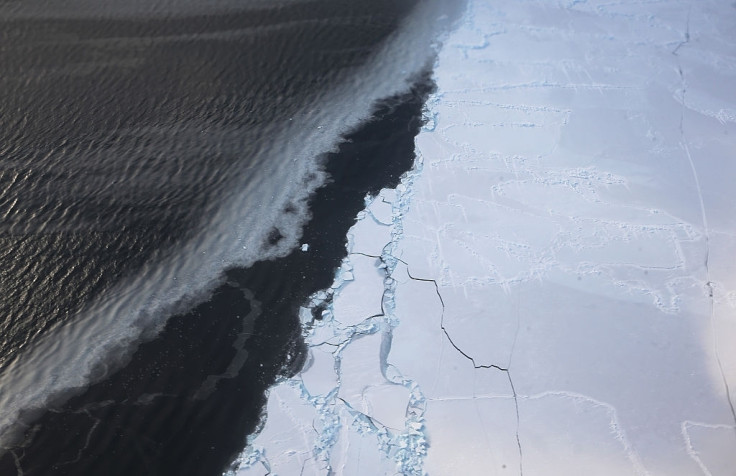Mysterious hole in Antarctica: Scientists detect massive stretch of water surrounded by sea ice
Scientists detected the Maine-sized hole in Antarctica's Weddel Sea when they were monitoring the area with satellite technology.

Scientists have discovered a hole as big as the state of Maine or Lake Superior in the frozen ice of Antarctica's Weddell Sea, according to a report in the National Geographic.
The gap, measuring about 80,000km<sup>2 at the largest, was detected far from the edge of the ice last month (early September) when scientists were monitoring the area with satellite technology.
Massive stretches of open water surrounded by thick sea ice — like this one — are known as polynyas. They appeared in Antarctica in the 1970s, but disappeared for decades before reopening last year for a brief period and again this year.
The latest hole is way bigger than the last discovered and was spotted by scientists from the University of Toronto and the Southern Ocean Carbon and Climate Observations and Modeling (SOCCOM) group.
"In the depths of winter, for more than a month, we've had this area of open water," says Kent Moore, professor of Physics at the University of Toronto. "It's just remarkable that this polynya went away for 40 years and then came back."
Describing the hole to Motherboard, Moore said, "It looks like you just punched a hole in the ice". He said if it was not for satellite technology they would not even know the enormous gap existed.
Polynyas can form with the rise of warm water in deeper parts of the oceans — a process (triggered by ocean currents) that can ultimately melt the ice on the surface. The warm water can keep the ice from reforming, but once it cools, it goes to the bottom, allowing the cycle to continue.
Though Moore thinks marine animals could be using this hole to breathe, it is still unclear why it reopened after so many years, what long-term effect it could have on Antarctica's oceans and climate, or if it was triggered by climate change or any other process.
The joint group is analysing the data they have collected to answer some of those questions in a study they plan to publish sometime in the future.
© Copyright IBTimes 2025. All rights reserved.





















